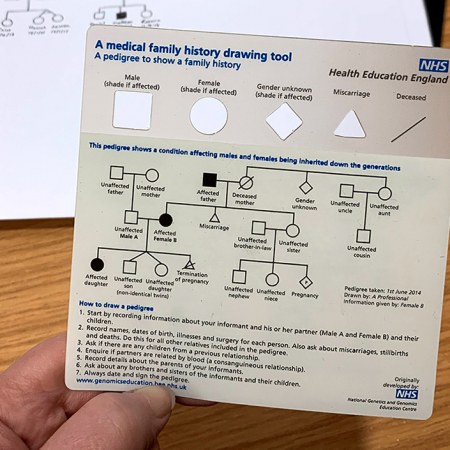Definition
A genetic family history consists of information describing how family members are related to each other (their biological relationships) and any medical conditions they may have. This information is usually recorded as a family tree (pedigree), which shows a pictorial representation of relationships and those family members affected by medical conditions.
Use in clinical context
Family history can be an important factor for many common conditions including asthma, diabetes and some forms of cancer. A genetic family history can also be used to identify families which have individuals affected by single-gene conditions. Identifying the number of people in a family affected by a condition by taking a genetic family history can help to determine whether the condition has a genetic component. Some national clinical guidelines therefore highlight the importance of taking and recording a genetic family history when consulting patients. In clinical management, information from the family tree can be just as important as information from a laboratory test and if a genetic family history is not taken clinically meaningful information might be overlooked.
Related terms
Autosomal inheritance | Dominant phenotype | Recessive phenotype






